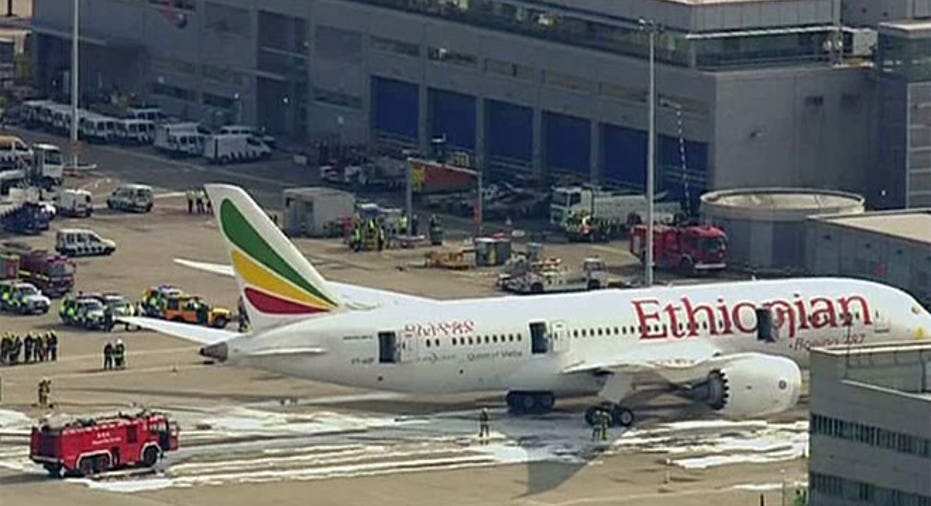Officials Call for Safety Review of Honeywell Rescue Beacon

UK aviation authorities urged U.S. safety regulators to stop using an emergency locator transmitter (ELT) made by Honeywell (NYSE:HON) in Boeing (NYSE:BA) 787 Dreamliners on Thursday and conduct a safety review of lithium-powered emergency installations in other aircraft.
Honeywell said the process is straightforward and does not expect any "material financial impact." The U.S. Federal Aviation Administration said it is reviewing the recommendations to "determine the appropriate action."
The UK Air Accidents Investigation Branch (AAIB) recommendation comes just under a week after a fire erupted on an empty Dreamliner operated by Ethiopian Airlines that was sitting sitting on the Heathrow Airport tarmac for eight hours. No one was injured.
Boeing said it supports the two recommendations, calling them “reasonable precautionary measures to take as the investigation proceeds.”
“We are working proactively to support the regulatory authorities in taking appropriate action in response to these recommendations, in coordination with our customers, suppliers, and other commercial airplane manufacturers,” the Chicago-based jet maker said in a statement.
Honeywell told FOX Business it is "premature to jump to conclusions," but said it supports the proposal and will offer assistance to Boeing and the airlines if needed.
"Temporarily addressing the ELTs on Boeing 787s as a precautionary measure is prudent," the company said in a statement. "The Boeing 787 ELT product action is a straightforward process, and we do not anticipate any material financial impact to Honeywell."
A different model of the Hoenywell ELT faced regulatory scrutiny in 2009 as well, however the device has largely been operated without incident.
The beacon designed by Honeywell activates in the event of a crash, allowing emergency workers to more easily locate the aircraft. It is comprised of lithium-manganese dioxide, which allows it to operate entirely separate of the 787’s electrical power system.
Further examination of Friday's blaze found “some indications of disruption to the battery cells,” though regulators warned that it is not clear whether the combustion in the area was caused by the batteries or by an external mechanism such as an electrical short.
The initial investigation confirmed extensive heat damage in the upper portion of the rear fuselage with significant thermal effects on aircraft insulation and structure where the transmitter is located. The AAIB said there are no other aircraft systems in the vicinity that, if the jet is unpowered, would contain stored energy capable of initiating a fire.
Honeywell has produced some 6,000 units of this particular transmitter model, which are fitted in a wide range of aircraft. The Ethiopian Airlines incident, however, has been the only significant thermal event to date.
The AAIB said large aircraft do not typically carry the means of fire detection or suppression in the space above the cabin ceilings.
“Had this event occurred in flight it could pose a significant safety concern and raise challenges for the cabin crew in tackling the resulting fire,” UK regulators said.
It urged the U.S. Federal Aviation Administration to conduct a review of other transmitter systems and, when appropriate, initiate airworthiness action.
“It is recommended that the FAA initiate action for making inert the Honeywell International fixed Emergency Locator Transmitter system in Boeing 787 aircraft until appropriate airworthiness actions can be completed,” AAIB said in a report.
Lithium batteries were at the root of a series of battery meltdowns earlier this year that forced a mandatory grounding of the world’s fleet of Dreamliners for four months. Lithium manganese is used in a wide-range of consumer products as well, including digital camera, phones and even pacemakers.
The investigation remains ongoing and the AAIB said it will provide updates when appropriate.
Shares of Honeywell initially dropped on the news but have since rebounded and were up about 1% to $83.22. Boeing’s shares jumped close to 2.5% following the report’s release and recently traded at $107.40.



















